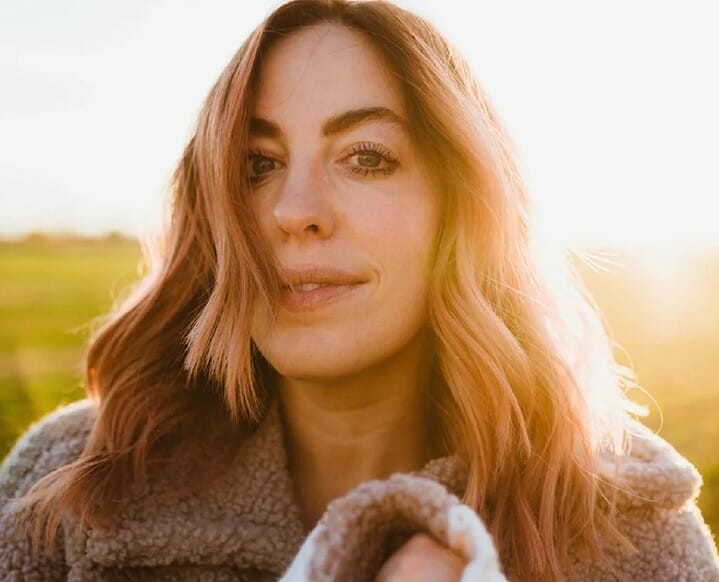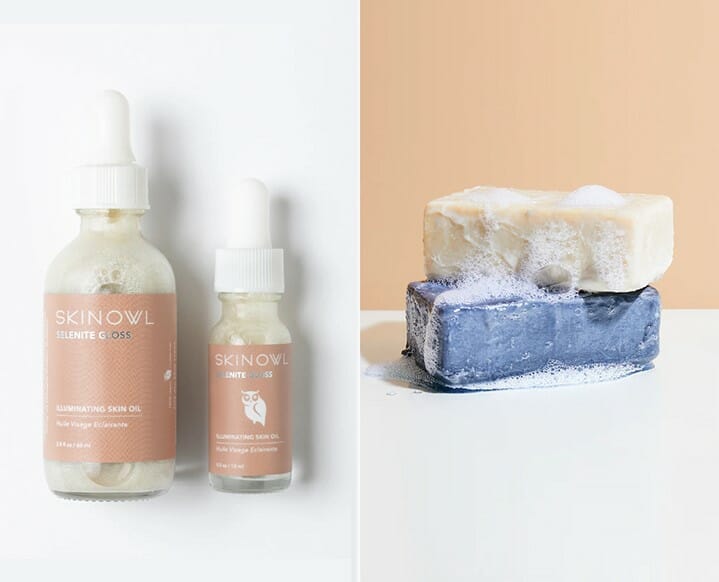Annie Tevelin is the founder and formulator of conscious skincare brand, SkinOwl. Speaking to hundreds of women interested in safe or clean skincare on the regular, Annie has noticed that some of us have developed an overly disciplined take on toxic ingredients that may not serve us well…
If you’re alive in the year 2023 and living anywhere on the internet, you’ve probably come across a narrative (often nesting within the walls of the wellness industry) that says the following: ‘X product’ can save you or ‘Y product’ can ‘heal’ what ‘Z product’ started.
As a skincare formulator and founder, I have had to dance the line between products that simply support the skin and meet people where they are, and yet don’t turn their routines from self-care to self-scare. Good skincare rituals give us a moment to check in with our bodies and get us closer to our skin’s optimal health, but since opening our brand’s brick and mortar two years ago, I’ve noticed a negative trend amongst our clean skincare-loving community. I’ve found myself reassuring people that the one-off shampoo mini in their hotel room won’t cause them immediate harm. Similarly, the sunscreen they snapped up on a whim for their vacation won’t, in fact, kill them upon application.
The Truth About Clean Beauty + Toxic Ingredients
In almost every instance, the harm that can come from using personal care products with ingredients from ‘the dirty list,’ i.e. synthetic fragrance, parabens, propylene glycol, Red 40, is a gradual one. Barring any acute allergies or intolerances, the absorption detriment is a cumulative effect of habitual exposures for years. In sum, the more you engage with them, the greater the proposed risk can be.
For many, shopping organic or ‘intentional’ is a luxury, one that boxes out entire demographics by default. What I’ve found to be true is that the stress and worry that comes from this fear of toxic ingredients can defeat the purpose of the care. Women especially are struggling with their mental health at alarming rates. According to the American Psychiatric Association, each year 1 in 5 women in the United States struggles with a diagnosable mental health condition. Women are also twice as likely as men to experience generalized anxiety disorder or panic disorder.
What I know to be true: the fear-mongering around product use most certainly isn’t helping women see self-care as an internal practice; rather, a competitive stop on their to-do list.
A Stress-Free Approach To A Clean Skincare Routine
So where do we go from here? What I’ve found is that the ‘few-many’ theory is a sturdy place to land with concern to a well-adjusted action plan: Many situations in life will allow for your controlled environment. Few situations will not, i.e. washing your hands with gas station soap, using your grandmother’s synthetic fragrance-filled detergent. If you can ensure your everyday, habitual products give you peace of mind, then the ‘few’ incidents that arise won’t matter in the ways we may have been programmed to think they will.
Of course, if every exposure to gluten or oxybenzone in your sunscreen gives you a migraine, stop using the product or ingredient.
The takeaway: a few exposures or accidental run-in’s is not what causes breast cancer or chronic endocrine disruption. Rather, it is a rubber band that thickens over time. To help, here are three ways to shop intentionally and accurately:
01 | Track what products you’re using on a daily basis. Be it foundation, concealer, lip gloss, antibacterial, glass cleaner, or deodorant, make a mental or handwritten list. If you’re inspired to keep using these products without any modifications for the foreseeable future, research the ingredients listed on the back of the bottle. If they make you feel uncomfortable, use this as your motivation to find something that won’t. EWG is a great resource to look up an ingredient’s organ and respiratory toxicity profile.
02 | If within your means, get an updated complete blood count. Get clear on your proprietary health journey. What happens to someone else won’t necessarily happen to you. Being proactive is the key to early prevention.
Schedule your breast exams. Go to urgent care and request imaging for whatever part of your body might be sending you signals.
03 | Find outlets for your stress. So often, our collective ‘fear of toxins’ stems from something else. Are you living your life the way you want to? Are you projecting someone else’s bad health luck as yours? Revel in your beating heart, breathing lungs and legs that move you throughout your life. Anchor the truth that everyday, your body gets up and works for you and wants to survive.
Read Next: In The Kitchen At Home With The Food Babe, Vani Hari
